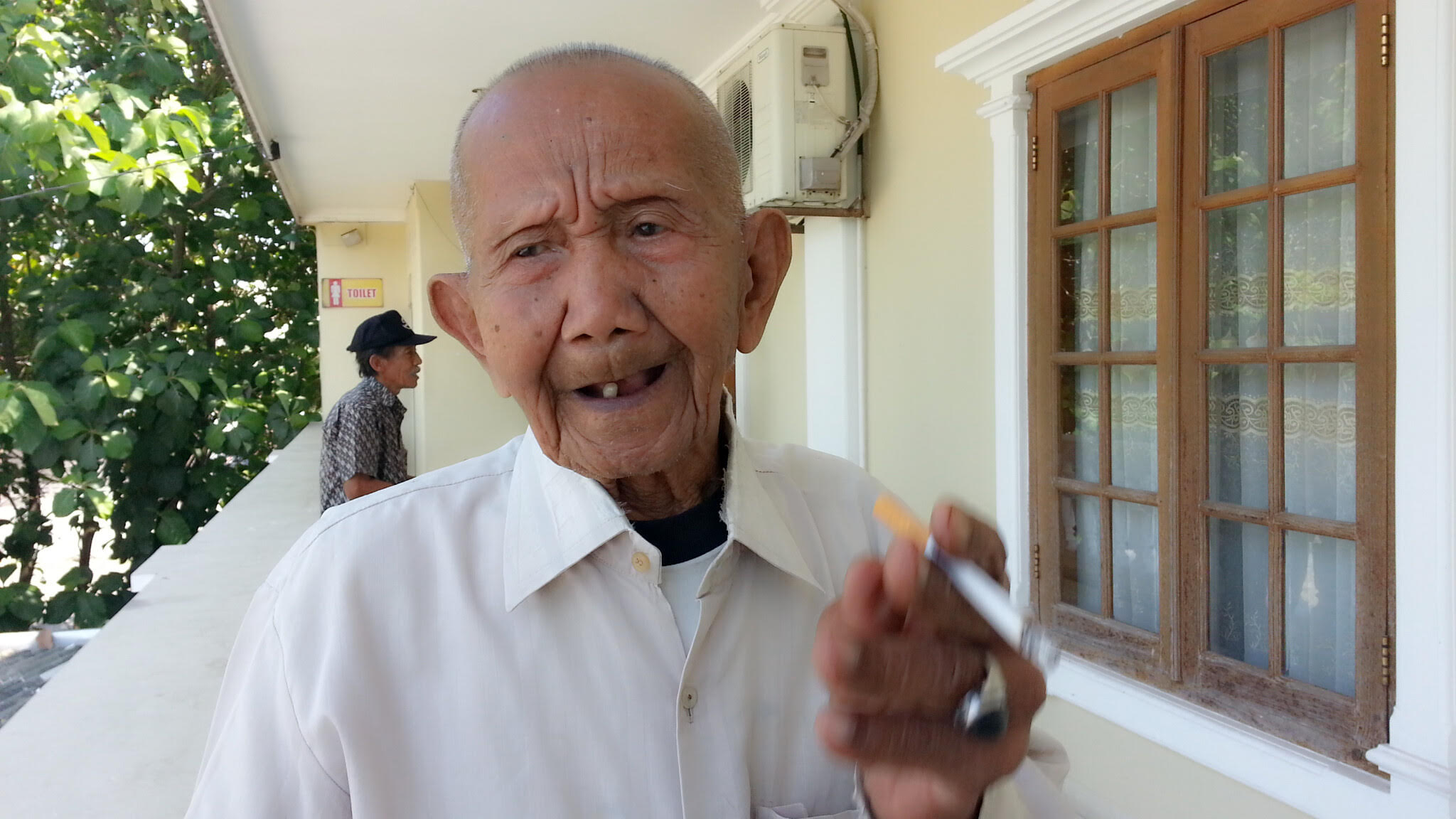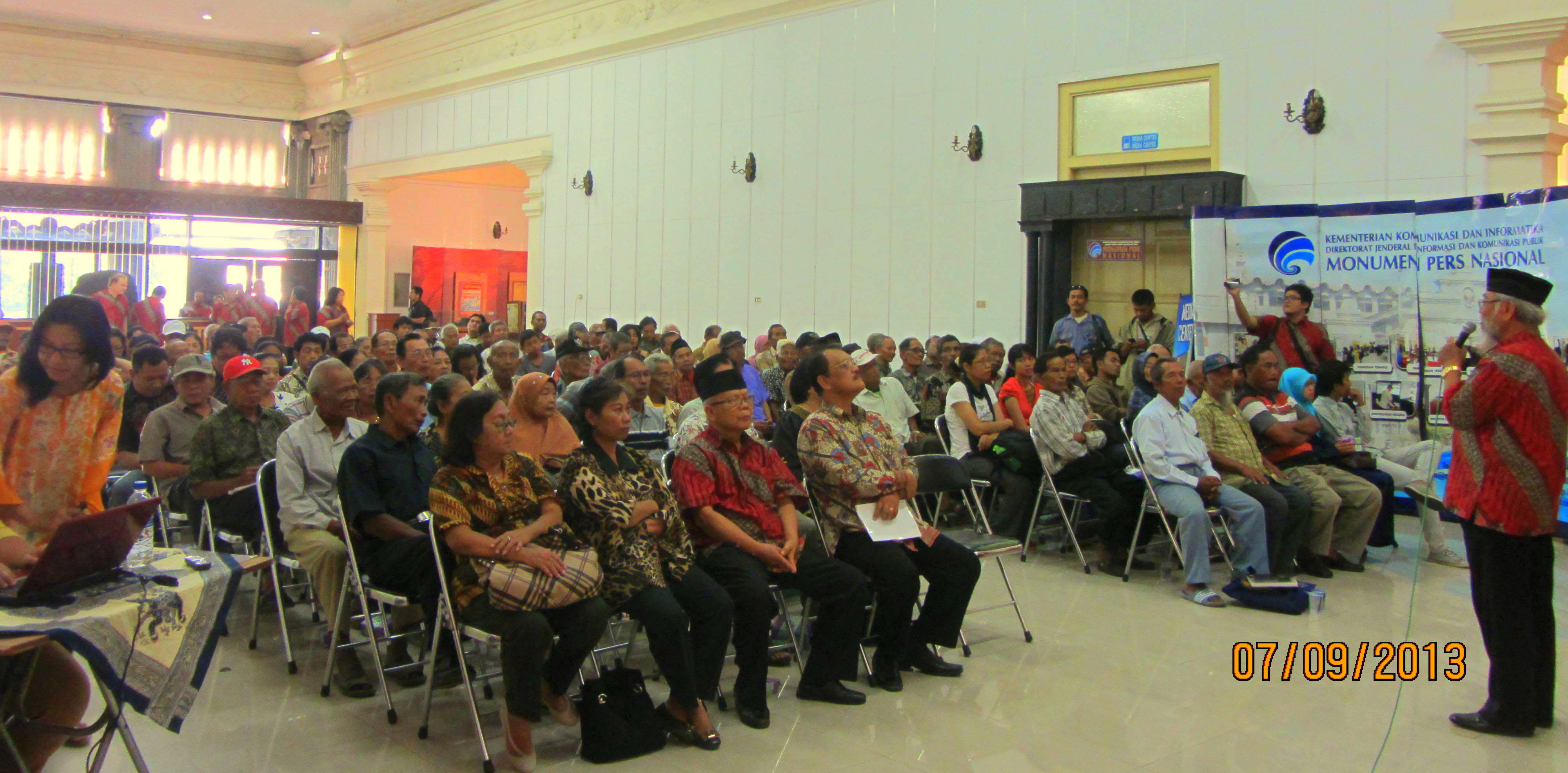Baskara T Wardaya
Political reconciliation is necessarily a modest concept. When moral demands are too high, social momentum suffers. Abstract definitions of reconciliation that involve romanticised notions of repentance, forgiveness and restitution are often politically unhelpful.
Charles Villa-Vicencio, writing about South African reconciliation
Efforts to accomplish political reconciliation regarding the mass violence of the 1960s began shortly after the fall of President Suharto’s government in 1998. A number of non-governmental organisations were established with the intention to provide political help for victims of past human rights abuses, especially victims of the politicide of 1965-66, also known as Tragedi ’65 (the 1965 tragedy).
Most of these organisations were based in Jakarta and had strong political agendas. They directly demanded that the government took responsibility for what happened in 1965-66. They also asked that the demands of the victims and survivors of the 1965 tragedy be met, including official repentance and restitution.
Some of these organisations faced serious challenges. Their activities often caused strong reactions in the form of political pressure and public protests from military and civilian groups opposed to a public discussion of the 1965 tragedy. This led to internal divisions within the groups working for reconciliation on the question of how to deal with the government. Some organisations even broke up over this question.
In 2004, parliament passed a law to establish a truth and reconciliation commission. Would the issues surrounding the 1965 tragedy now finally be addressed? Unfortunately the law created divisions among human rights activists regarding the question of whether or not reconciliation and amnesty required a judicial mechanism and truth telling. To the surprise of many, the Indonesian Constitutional Court responded by withdrawing the law altogether in December 2006.
Local reconciliation efforts
Against this backdrop, new groups were born that addressed the plight of the 1965 survivors, but did so without directly and politically challenging the central government. One of these is a group of survivors in Solo, Central Java, who established an organisation called Sekretariat Bersama 1965 (1965 Joint Secretariat) or SekBer ‘65 for short.
Founded in 2005, SekBer ‘65 differs from other organisations dealing with the 1965 tragedy in its scope and approach. Where others focus on Indonesia’s capital, Jakarta, SekBer ’65 aims to be a ‘joint secretariat’ that coordinates survivor organisations at the district level in Central Java. Most importantly, it avoids a political approach and shuns direct confrontation with the central government.
It does not, for instance, join efforts to pressure the government to annul a 1966 decree banning communism and Marxism-Leninism in Indonesia (the so-called TAP MPRS No. 25/1966). SekBer ’65 also refuses to join groups that demand trials of perpetrators of the 1965 tragedy. Most of the chief perpetrators are already dead. Moreover, in SekBer ’65’s view, Indonesia’s legal system is still very corrupt. The group feels it will be almost impossible for survivors to win their case.
SekBer ’65 does hope that the state, in this case the government, apologises to the people of Indonesia for the ‘extraordinary human tragedy’ of 1965-66. But before such an apology becomes a reality, SekBer ‘65 works on reconciliation from below by organising forums at the grassroots level. It hopes that such efforts will make dealing with past human rights abuses more concrete, and will thus foster reconciliation in other places.
SekBer ’65 emphasises the importance of personal relationships – among fellow survivors and between survivors and other members of the society in which they live. In this way, the group anticipates the presence of groups in Central Java that are ready to counter and even attack any forum that addresses 1965 issues.
Apolitical?
A political approach certainly remains an option for SekBer ‘65, but only where it directly helps the survivors in their plight and does not complicate the situation. ‘Political’ in this sense means to SekBer ’65 a non-judiciary mechanism, an effort to address the 1965 issue through reconciliation within the framework of a truth and reconciliation commission. When the Indonesian Commission on Human Rights (Komnas HAM) recommended two alternatives for solving the problems of 1965 in 2012 – namely through legal or political mechanisms – SekBer ’65 opted for the political mechanism.
Local SekBer ’65 member organisations hold monthly meetings in their respective locations. On occasion they hold larger forums in Solo, home to the central coordinating administration. To raise awareness about the importance of reconciliation, SekBer ’65 collaborates with other groups, including student organisations. It hosts public discussion forums, compiles records of victims of the 1965 tragedy who are still alive, and makes inventories of mass graves. Despite its apolitical stance, SekBer ’65 seeks international support to pressure the Indonesian government to acknowledge the 1965 tragedy as a gross human rights violation.
 Mr. Ngismail (107 yrs old he says) a 1965 survivor from Klaten, Central Java, 2014
Mr. Ngismail (107 yrs old he says) a 1965 survivor from Klaten, Central Java, 2014
Intially SekBer ’65 developed slowly and only in the Solo area. But later it began to expand rapidly into other areas of Central Java. At first, SekBer ’65 was unsure how to relate to local governments. But as it gained confidence it initiated communication and even began to collaborate with government offices. To its own surprise, a number of them had no problem with the existence and activities of the organisation.
The Indonesian Ministry of Communication and Information Technologies (Kominfo) gave SekBer ’65 permission to use its building in Solo for two seminars on 1965. In November 2012, SekBer ’65 hosted a book discussion which was attended by, among others, the Mayor of Solo, FX Hadi Rudyatmo. Almost a year later, in September 2013, SekBer ’65 held a public screening of the documentary film 40 Years of Silence: An Indonesian Tragedy, in which victims of the 1965 tragedy relate their experiences.
The presence of the Mayor of Solo in 2012 was important. He was willing to engage in a dialogue with survivors of the 1965 tragedy and seems to be committed to help them enjoy the same rights and benefits as other citizens of Solo. The head of Karanganyar district, near Solo, also responded positively by providing health and other services to Sekber ’65 members.
The many positive responses that SekBer ’65 enjoyed do not mean its members do not encounter difficulties. On 24 February 2015, SekBer ’65 was about to host a forum on government health programs for survivors, together with Komnas HAM and the Witness and Victim Protection Agency (LPSK). Suddenly the meeting was attacked. A group of people holding flags and banners with anti-communist and Islamic symbols blocked the forum’s venue. The protesters forbade participants to enter the forum’s location while shouting anti-communist slogans. The security personnel present did nothing to protect the survivors. In the end the forum was cancelled.
Despite this incident, the Indonesian government urged the Coordinating Ministry of Human and Cultural Empowerment to take concrete steps to provide health and economic assistance to the survivors of the 1965 tragedy. This is important since anti-communist discrimination practices have long made it difficult for many survivors to find jobs. Many are also in poor health due to advanced age. One of the steps undertaken by the ministry is providing a training program for family members of 1965 survivors to make household products, the sale of which should generate some earnings.
Towards reconcilitation
Even in South Africa, as Charles Villa-Vicencio wrote, political reconciliation is ‘necessarily a modest concept’. Conditions in Indonesia might be even less conducive than in Nelson Mandela’s South Africa. SekBer ’65’s apolitical approach should be appreciated as a modest concept aiming at reconciliation. Its methods minimise the likelihood of pressure from anti-1965 groups. Survivors feel safe and secure, and they become more willing to join SekBer ’65 activities.
At the same time, it should be acknowledged that the SekBer ’65 initiatives are insufficient to achieve reconciliation at the national level, except by inspiring others to do the same. SekBer ’65’s ’non-political’ approach is actually quite political. But it is limited in scale. It does not do justice to the magnitude and impact of the 1965 tragedy, nor to the national and international factors that led to it. Indeed, a non-judiciary mechanism in the form of reconciliation is not the answer to all human rights problems. It could be a proper mechanism to deal with the 1965 tragedy. But as a way of addressing more recent human rights issues, such as the extra-judicial killings of the 1980s and the May 1998 riots, it might be insufficient.
Baskara T Wardaya (baskaramu@yahoo.com) is a lecturer at Sanata Dharma University in Yogyakarta. A volume of 1965 survivor stories he edited was launched at a Sekber ’65 meeting in 2012. It is translated as Truth Will Out: Indonesian Accounts of the 1965 Mass Violence (2013).
This article is part of a debate and should be read in conjunction with 'No reconciliation without truth'.
